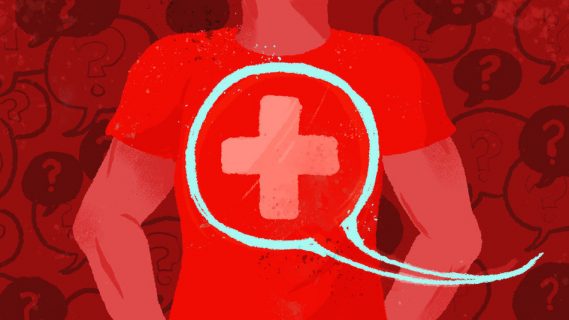
If you’re a teen or young adult, HIV may be the last thing on your mind.
But youth aged 13 to 24 accounted for 1 in 5 of all new HIV diagnoses in 2014, according to the Centers for Disease Control and Prevention (CDC). About 80 percent of those were young men who have sex with men. And more than half of young men who have sex with men don’t know their HIV status.
The good news is if you are 12 or older you can get tested for HIV without parental permission. The sooner you get tested, the sooner you can a) stop worrying and be sure to use a condom, or make your partner use one, or b) start treatment so you can stay healthier, longer. So how do you know if you should get tested? Here are 5 good reasons which apply to both young men and young women.
You’ve had unprotected sex with anyone, especially with more than one partner. Having multiple partners increases your chance of exposure to HIV. Even if you’ve had only one partner, you may think you know your partner very well, but do you know everything about them? More than 80 percent of African-American women living with HIV contracted it through sex with men, according to CDC.
You’ve injected drugs. You may have been infected by sharing needles or other items.
You’ve had unprotected sex with a partner who injects drugs.How well do you know your partner? Your partner may be engaged in behaviors that you are not fully aware of. You may think you’re safe, but that cannot be confirmed unless you are tested regularly.
You might have HIV and not know it, and you could infect other people when you have sex. HIV infection is commonly asymptomatic, and if symptoms occur, it can feel like any other viral infection. In addition, if you’re pregnant and have HIV you also can transmit the virus to your baby. It’s important to get tested and know your status.
If you have HIV, it’s better to start treatment early, before you have any symptoms. It’s possible to live a long and healthy life with HIV. While it can’t be cured, HIV can be controlled and managed with medication, as little as one pill a day!
If you live in the New York City area and are a teen or young adult, you can come to the Mount Sinai Adolescent Health Center for free, confidential HIV testing, counseling and treatment. New York City Health Department STD Clinics also provide HIV testing without parental permission. The CDC website can help you find fast, free and confidential testing anywhere in the U.S.
Take care of yourself and those you love! You can protect yourself and your partner against infection by using condoms whenever you have sex and getting tested frequently so you know your status. If you are at ongoing high risk of getting HIV but are HIV-negative, you can take PrEP, pre-exposure prophylaxis. PrEP helps prevent an HIV-negative person from getting HIV from a sexual or injection-drug-using partner who’s positive. Studies have shown it’s highly effective for preventing HIV when used as prescribed, according to CDC.
The Mount Sinai Adolescent Health Center is located in New York City. It provides comprehensive, confidential, judgment free health care at no charge to over 10,000 young people every year. This column is not intended to provide medical advice, professional diagnosis, opinion, treatment or services to you or to any other individual, only general information for education purposes only.


